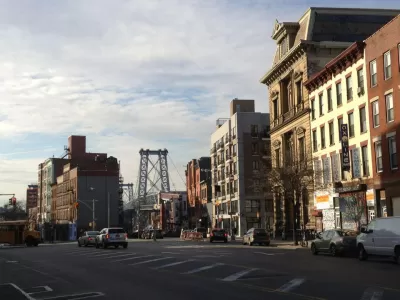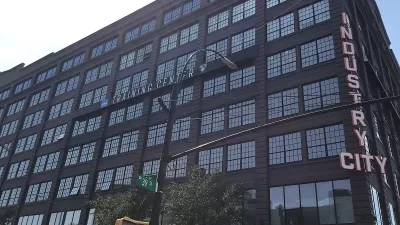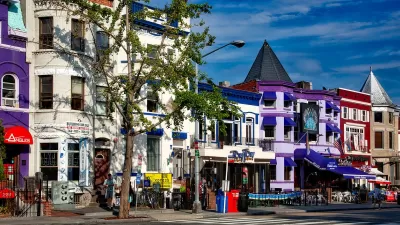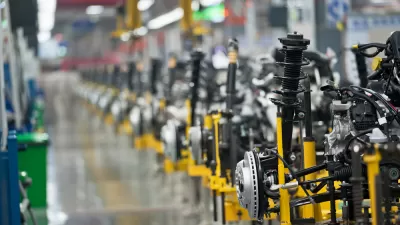Development in industrial areas is pushing out manufacturers, but new zoning regulations could help control the incursion.

Areas in New York City zoned for manufacturing are grappling with the influx of other land uses, particularly hotels, that are driving up costs for manufacturers, leading to a decrease in industrial buildings, and forcing workers to relocate farther away from jobs.
The city is finally taking steps to better regulate the conversion of industrial property by updating a zoning ordinance that had not changed since 1961, says Oscar Perry Abello:
City Council’s move last year requires that hotel special permit applications go through the city’s standard land use review process, known as ULURP (Uniform Land Use Review Procedure), which includes nonbinding input from the community as well as a binding vote by City Council. The council typically defers to the member whose district encompasses the land use application request.
The city has tried to support manufacturing in the past through the establishment of industrial business zones and an Industrial Action Plan. But community advocates say protecting land zoned for manufacturing is crucial. While the special permit for hotels is a move in the right direction, they are still concerned about existing development in these neighborhoods and the land use pressures that will come in the future, notes Abello.
FULL STORY: If Your City Wants Equitable Job Growth, It Has to Zone for It

Planetizen Federal Action Tracker
A weekly monitor of how Trump’s orders and actions are impacting planners and planning in America.

Maui's Vacation Rental Debate Turns Ugly
Verbal attacks, misinformation campaigns and fistfights plague a high-stakes debate to convert thousands of vacation rentals into long-term housing.

San Francisco Suspends Traffic Calming Amidst Record Deaths
Citing “a challenging fiscal landscape,” the city will cease the program on the heels of 42 traffic deaths, including 24 pedestrians.

Amtrak Rolls Out New Orleans to Alabama “Mardi Gras” Train
The new service will operate morning and evening departures between Mobile and New Orleans.

The Subversive Car-Free Guide to Trump's Great American Road Trip
Car-free ways to access Chicagoland’s best tourist attractions.

San Antonio and Austin are Fusing Into one Massive Megaregion
The region spanning the two central Texas cities is growing fast, posing challenges for local infrastructure and water supplies.
Urban Design for Planners 1: Software Tools
This six-course series explores essential urban design concepts using open source software and equips planners with the tools they need to participate fully in the urban design process.
Planning for Universal Design
Learn the tools for implementing Universal Design in planning regulations.
Heyer Gruel & Associates PA
JM Goldson LLC
Custer County Colorado
City of Camden Redevelopment Agency
City of Astoria
Transportation Research & Education Center (TREC) at Portland State University
Jefferson Parish Government
Camden Redevelopment Agency
City of Claremont





























